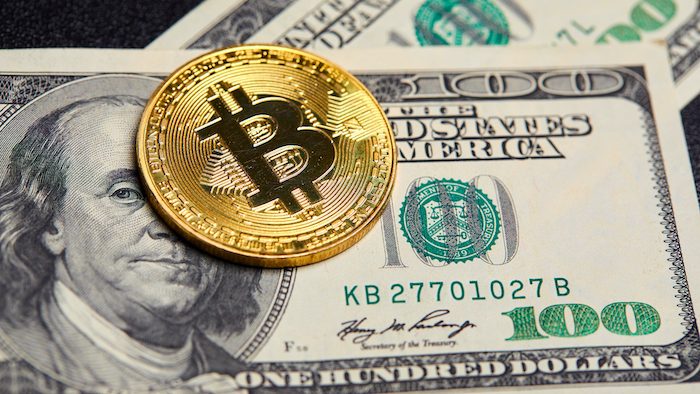JOHN HAWKINS
 Cryptocurrencies such as Bitcoin have now been hailed as the future of payments, and a replacement for national currencies, for a decade. The first purchase using a cryptocurrency occurred in May 2010 when a Bitcoin enthusiast in Florida named Laszlo offered 10,000 bitcoins for anybody who would order two pizzas to be delivered to him. At the time this was worth around US$ 30. He had to wait several days for anyone to take up the offer. If Jercos, who ordered the pizza for him, held onto the bitcoins he earned from this transaction until the bitcoin price hit its peak of almost US$ 20,000 in December 2017 he would have been able to exchange them for around US$200 million. In this sense they were the most expensive pizzas in history.
Cryptocurrencies such as Bitcoin have now been hailed as the future of payments, and a replacement for national currencies, for a decade. The first purchase using a cryptocurrency occurred in May 2010 when a Bitcoin enthusiast in Florida named Laszlo offered 10,000 bitcoins for anybody who would order two pizzas to be delivered to him. At the time this was worth around US$ 30. He had to wait several days for anyone to take up the offer. If Jercos, who ordered the pizza for him, held onto the bitcoins he earned from this transaction until the bitcoin price hit its peak of almost US$ 20,000 in December 2017 he would have been able to exchange them for around US$200 million. In this sense they were the most expensive pizzas in history.
Cryptocurrencies can be defined as electronic representations of value. They have no physical counterpart: while newspaper stories on Bitcoin often show shiny coins with a stylised B logo, this is just an attempt to represent in a picture something which only exists in cyberspace. Cryptocurrencies are not denominated in any physical currency such as dollars or euros, are not issued by a central bank and are not legal tender. Their issuance is generally limited in some way, such as by a complex algorithm. In the case of bitcoins, the total supply will never exceed 21 million.
Bitcoin, the first cryptocurrency, remains by far the best known and the largest cryptocurrency. There are now thousands of rivals, known as ‘alt-coins’, with the leaders including Ethereum, Ripple, Litecoin and splinters from Bitcoin. In the decade since Laszlo ordered his pizzas, however, none have been widely adopted as a means of payment.
Probably the main reason is that the value of most cryptocurrencies is so volatile and there are delays before payments are finalised. This is amplified by ‘network effects’. Customers will not bother to get bitcoins when so few vendors accept them and retailers will not bother to accept them when so few customers want to use them. You can buy an ‘I accept bitcoin’ t-shirt on Amazon or eBay but you cannot pay for it using bitcoins.
Some cryptocurrency advocates thought the coronavirus pandemic would provide a fillip. Fears that physical notes and coins might be contaminated with the virus have led many shops to prefer payment by electronic means. But they are encouraging use of conventional electronic means such as credit and debit cards, not cryptocurrencies. Currency on issue has actually increased as some people feared banks might be forced to close.
It was also suggested that as central banks started buying large amounts of government bonds confidence in national currencies would decline and drive investors into cryptocurrencies. Another argument was that with many asset and commodity prices falling, investors would seek to buy cryptocurrencies to diversify. None of this has happened. Instead the price of bitcoins halved from around US$ 10,000 in February to around US$ 5,000 in March, before gradually recovering.
In June 2019 a consortium led by Facebook announced that it would launch a cryptocurrency called Libra in 2020, whose value would be backed by a basket of national currencies (and so its value would fluctuate against any individual currency). Given the scale of the financial resources of the consortium and the huge customer base of Facebook, this was seen as a significant event. Libra was viewed by some as posing a threat to the ability of central banks to operate monetary policy. But this was never likely.
Facebook had claimed that the Libra Association would have around a hundred members by the time it launched in 2020. Instead many of the initial members, such as eBay, PayPal, Visa and Mastercard, have dropped out. Last month Facebook announced a number of changes to the project. Libra would no longer be a new currency but merely a way of facilitating payments in some of the world’s major national currencies. It also announced concessions to regulators likely to disappoint its more libertarian supporters. The stated timing now refers to a ‘hope’ of being operational by the end of 2020. The only piece of good news about the project was that Singapore’s Temasek, a very large institutional investor, is joining the Libra Association.
It still appears that if a type of cryptocurrency is to become significant it is most likely to be a digital version of an existing currency issued by a central bank. Central banks have credibility and trust, as well as deep pockets and expertise, and can issue a digital currency that is legal tender. The People’s Bank of China has a Digital Currency Research Institute which has filed a number of patents. A large number of central banks are working on the topic with some having reached the stage of pilot projects and expecting to issue within 2-3 years.
No comments:
Post a Comment